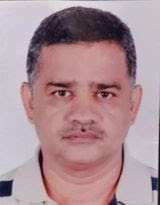Trading in gold ETFs more than doubles
Khyati Dharamsi / DNA MONEY | Thursday, 02 October , 2008, 11:58
Mumbai: Equity market uncertainties have spawned gold investors by the thousands.
Gold ETFs in limelight; collections up 14% in August
But they are not buying traditional gold jewellery — the demand for that is declining, say analysts.
Instead, trade in the yellow metal sold in paper form has more than doubled since January 2008.
India gold down, but not enough for buyers
Average volumes in gold exchange traded funds (ETFs), which are mutual fund plans whose value is based on gold price and whose units can be bought or sold on the stock exchange, have increased by 111.12 per cent to 50,080 units per day in the last nine months.
How housewives can invest in gold
Globally, gold ETF demand shot up by 223 per cent during the first half of 2008 vis-à-vis first half of 2007, according to data from World Gold Council.
Since a gold ETF is in dematerialised form, one can buy as little as one gram. Data from the Association of Mutual Funds in India show all five gold ETFs trading on Indian exchanges saw inflows of Rs 57 crore in August 2008, taking the total assets held under gold ETFs to Rs 467 crore, as on August 31, 2008.
"There is an impact of awareness, as well as a fallout of the equity markets falling. Also, the number of retail investors is growing," says Sanjiv Shah, executive director of Benchmark Asset Management Company, which launched India's first gold ETF.
"Our Gold BeES Corpus has exceeded Rs 300 crore and is now worth 2 tonnes," said Shah. Benchmark's gold ETF has 35,000 investors.
Interestingly, there is a crunch of gold coins in the US because investors are rushing to pick them up. "We buy kilo bars. There used to be a crunch in August, but not anymore," Benchmark's Shah said.
Keyur Shah, associate director at World Gold Council said when the equity markets collapsed people realised that they need to have at least 10-15 per cent of their portfolio in gold.
People who didn't have gold in their portfolio wanted it as a diversifying tool, he said.
"ETFs are looked at as a pure investment option. When there is economic trouble, gold becomes the best performing asset class," Shah said.
Under license from www.3dsyndication.com
.JPG)
.JPG)
.JPG)
.JPG)

